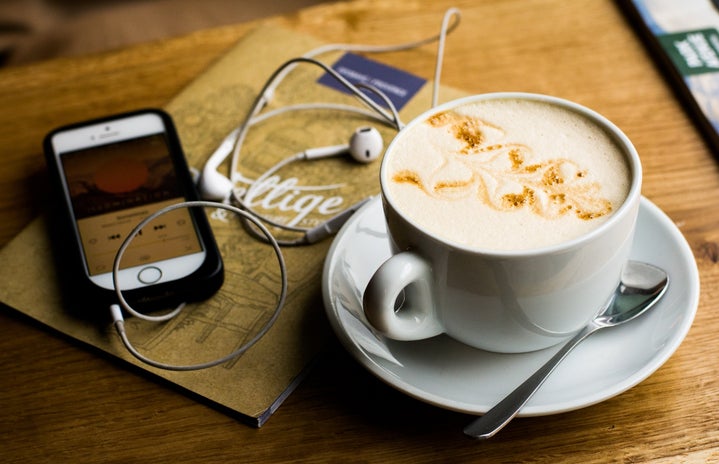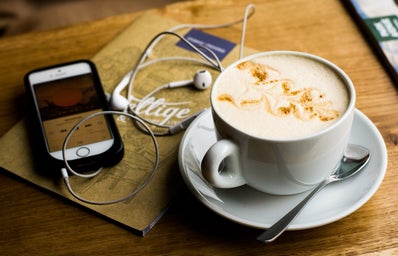As a college student on campus, it is more than easy to throw healthy eating out the window, especially with limited dining options. Stereotypes lead people to people believe college students are known for their unorganized schedules and need to hop between classes with little time in between to grab a meal, socialize, and study. This can be a reality for a lot of students and leaves them to rely on quick meals like fast food and their choice of caffeinated beverage to keep them awake all day and night. Today, caffeine now serves as a staple in young adults’ lives.
For instance, did you ever scold yourself for standing in line at Starbucks after the sun has set, but order your favorite coffee anyway? Or did you ever catch yourself chugging another energy drink with hopes to stay awake for another night studying at the library? Does caffeine weave its way into your daily life so much so that you get left with a pounding headache, become irritable or start to shake when you go without it? These are indicators of withdrawal, as your body grew so accustomed to caffeine in the bloodstream that it craves more, like any other drug withdrawal. I do not think many people realize that caffeine is a drug – a stimulant – and the effects for some can be unbelievable. From my psychology courses and personal experience, I learned that caffeine and anxiety disorders are far from friends.
The elimination of caffeine from my life began with soda. While living on campus, my eating habits deteriorated so incredibly that on some days, I drank three bottles of soda. At that point, the discomfort in my stomach every day told me it was time to cut it out. Removing soda from my diet alieved me of a lot of physical and mental distress as the carbonation left me bloated and uncomfortable, and the caffeine left my mind in a frenzy, which encouraged me to analyze the effects of my avid coffee drinking as well.

There was one instance in particular that woke me up to the idea that caffeine may not be as helpful as I once thought it was. I arrived at class for an important test after picking up an iced latte. Before I even arrived, the plastic cup was drained to the bottom, leaving a cold pile of ice cubes. As my professor handed us our tests, I started to worry. My hands shook so much that I could barely hold my pencil straight, my foot tapped against the tiled floor to a fast-paced song I could not hear, my eyes darted to every corner of the room, and my mind tried to juggle my whole to-do list for the day, rather than recalling what I studied all week. This persisted throughout the entire class period.
Some may not experience such wild jitteriness like this from caffeine as I do. However, people who struggle with anxiety often are more susceptible to caffeine’s adverse effects. As an anxious person in general, the caffeine was perpetuating my symptoms: restlessness, low-quality sleep, worriedness, and difficulty concentrating on one thing. After handing in my test that day, I knew I needed to cut down on the coffee, just like I had the soda, for my benefit.
The less I drank coffee (or any caffeine), the more I realized how much it affected me, especially when I would treat myself to a venti Starbucks Refresher. The caffeine effects became heightened after not having it for so long. The last time I indulged in such a delicious, caffeinated drink, I could not focus on anything, felt shaky, could not fall asleep, and felt compelled to do more than one thing at once that stressed me out even further. These feelings lasted the whole day, not just for a few hours. I did not feel like myself, but instead, I felt stuck in an almost dissociative trance. At that point, I needed to abandon any caffeine ingestion entirely; the “treats” here and there were not worth the whirlwind of negative effects on my body and mind.

After cutting caffeine out completely, I no longer possessed a substance to rely on to keep me awake. As a result, I made sure I got enough to sleep every night, which benefited me more in terms of cognitive functioning and overall well-being. Without caffeine in my bloodstream making me all fidgety, I could focus more on tests and school work, and I felt more relaxed during any social, mental, or recreational activity. I felt like myself!
You may not think caffeine affects you, but I did not realize how much it affected me until I stopped. I recommend trying it for at least a week to see how you feel! You may notice you do not need it after all, or even better, your overall health has improved. Do not worry, though. You can still get your Dunkin coffee; just order decaf!



